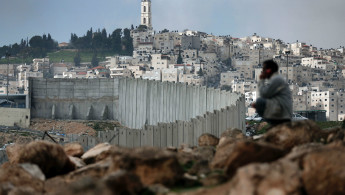Billions spent on settlers since Israel captured West Bank
There is no official overall figure for Israel's spending on Jewish settlements since the June 1967 Six-Day War.
Each year, the finance ministry has published partial figures, amounting to 3.5 billion US dollars over the 12 years up to 2015, but the sum does not include investments before 2003.
It also does not cover the vast amounts spent on infrastructure such as special roads reserved for settlers and on their security.
More than 600,000 settlers live among 2.9 million Palestinians in the West Bank and annexed east Jerusalem, with frequent outbreaks of violence.
The figures also do not include the Gaza Strip, which Israel also captured in 1967 but from where its army and settlers pulled out in 2005.
The settlements, which are deemed illegal under international law, are widely seen as a key obstacle to peace between Israel and the Palestinians.
No Israeli government, however, has turned its back on the settlers.
Roby Nathanson, head of the Macro Center for Political Economics, which publishes reports on settlements, estimates the total costs since June 1967 as 20 billion US dollars.
The total surface area of settlements construction in the West Bank has doubled in 18 years, according to the non-governmental organisation.
 |
Our conclusions are clear: the situation is by no means irreversible. Economic options exist for the implementation of a solution of two states for two peoples |  |
As a financial incentive for the expansion of settlements, the average settler receives three times more in public subsidies than a resident of Israel within its pre-1967 borders.
Shlomo Swirski of the Adva Center, another NGO, estimates that Israel spent 15.2 billion US dollars between 1988 and 2015 alone.
"This burden has contributed to deepening social inequality in as much as the money goes to settlements and their defence at the expense of social budgets," he said.
'Not irreversible'
Despite the huge sums injected into settlements, several activists favourable to the creation of an independent Palestinian state argue that settlements are not irreversible.
The Israeli economy has the means to finance the resettlement inside the country of 100,000 Jews, according to Gilad Sher, a former close aide to former prime minister Ehud Barak, estimating the cost at 10 billion US dollars.
Sher, a founder of Blue-White Future which advocates "the Jewish and democratic future of Israel", was referring to the number of residents of isolated West Bank settlements which are considered the most likely to be evacuated under any two-state peace settlement with the Palestinians.
The political consensus in Israel favours annexation of the large settlement blocs which are home to 300,000 Jews.
"We have drawn up a detailed and credible plan on the removal of 100,000 settlers" because the government has refused to do so despite an official recommendation dating back to 2010, said Sher.
"Our conclusions are clear: the situation is by no means irreversible. Economic options exist for the implementation of a solution of two states for two peoples."
Nathanson said it was "perfectly possible" to envisage a withdrawal of 100,000 settlers in phases over a period of two to three years.
"The problem is not an economic one, it is above all political," he said.



